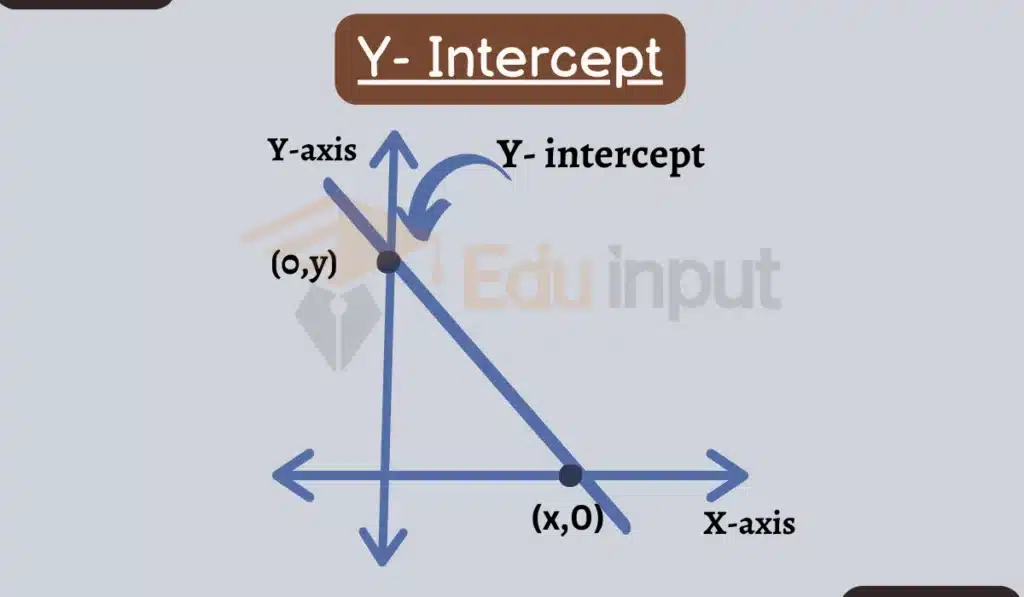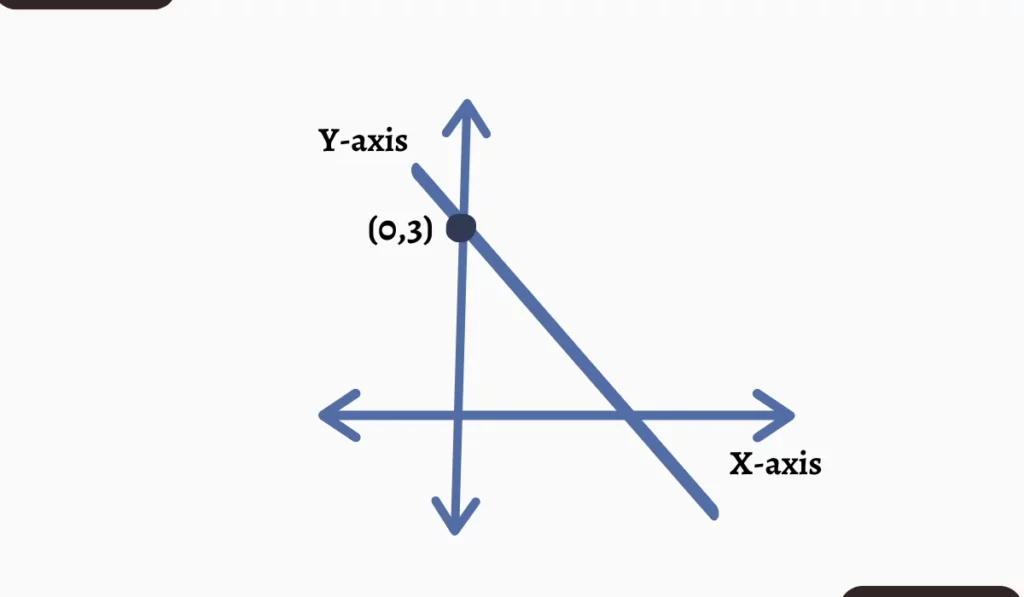Y-Intercept in Mathematics
Y -intercept is an important concept in graphing linear equations and understanding their meaning. It refers to the point where a line crosses the y-axis on a Cartesian coordinate plane.
In this article, we will discuss how to find the y-intercept in mathematics.

How to Find the Y-Intercept
To find the y-intercept of a line, you can use the linear equation in slope-intercept form:
y = mx + b
Where m is the slope and b is the y-intercept.
The y-intercept is the value of b in this equation. It is the point where x = 0.
Example
y = 2x + 3
Here, the slope m is 2 and the y-intercept b is 3. This means the line crosses the y-axis at (0, 3). The y-intercept is 3.
Graphical Representation
Graphically, you can also see the y-intercept is where the line crosses the y-axis. Plotting the line y = 2x + 3, it crosses the y-axis at (0, 3).

Mathematical Meaning
Y-intercept has an important mathematical meaning. It indicates the starting value or initial value when x = 0.
For any x value input into the equation, the y-intercept is the minimum y value that will be output.
Real-World Significance
Y-intercept is important in many real-life situations, especially when dealing with costs, finances, and measurements. It gives you valuable information about the starting point or initial value in a linear relationship.
Example
Consider the equation,
y = 50x + 100
This could model the revenue a company earns from selling x number of items priced at $50 each. The y-intercept is 100, meaning when 0 items are sold, the initial revenue is $100. This could represent a fixed overhead cost the company has regardless of sales volume.






Leave a Reply